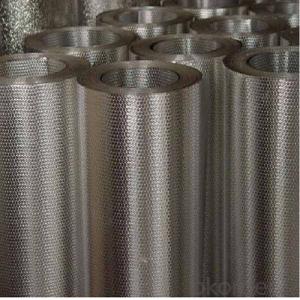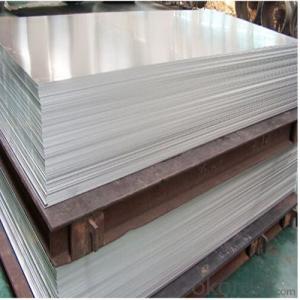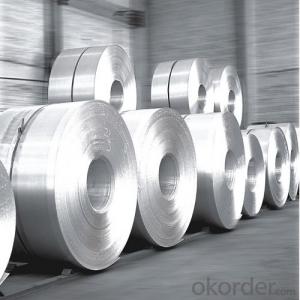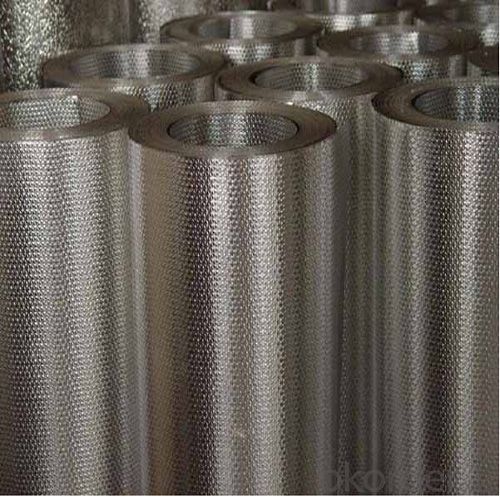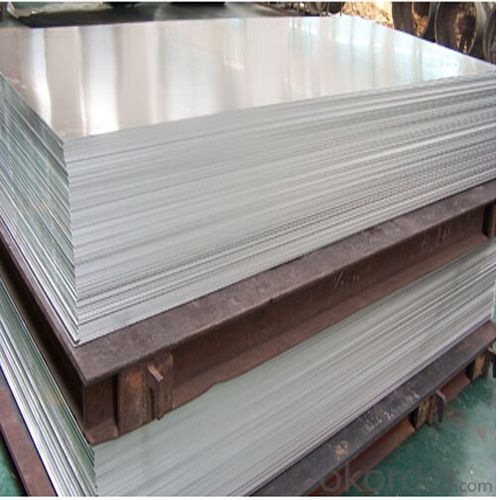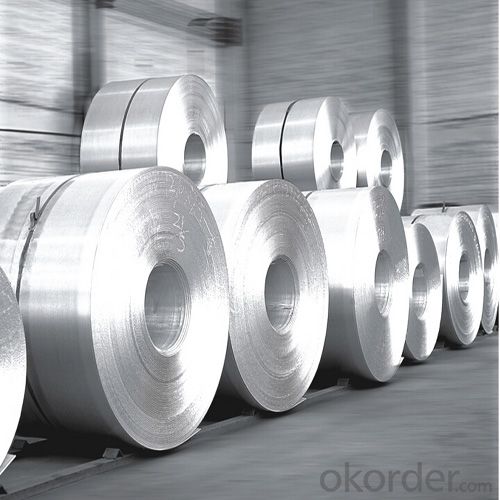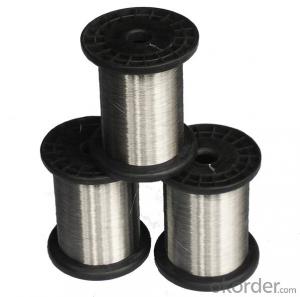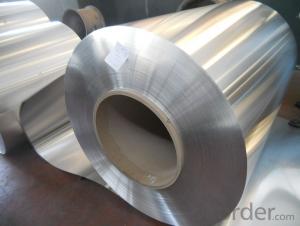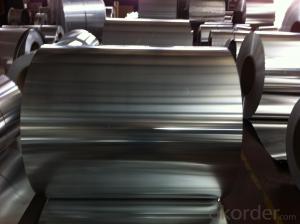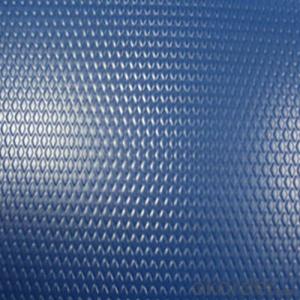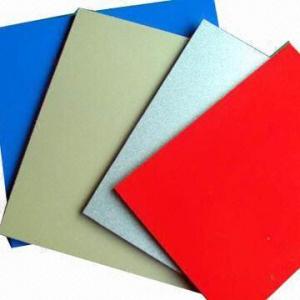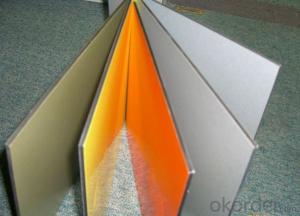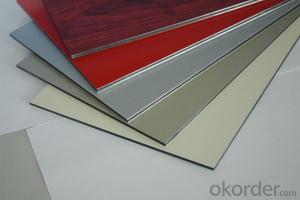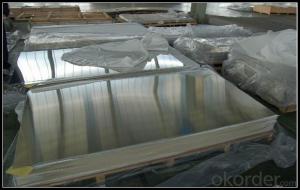High Quality Aluminum Sheets for Boat Decking - Sign Board Color
- Loading Port:
- Shanghai
- Payment Terms:
- TT OR LC
- Min Order Qty:
- 5 m.t.
- Supply Capability:
- 10000 m.t./month
OKorder Service Pledge
OKorder Financial Service
You Might Also Like
Specification
1.Structure of Sign Board Color Aluminium Sheet Description:
Color-coated aluminium coil combines all advantages of modern coil-coating technology in our full-automatic production line. Our modern production is 4 coated in one with digital precision control, we can created pattern like Wood, stone, graphic as you want. The aluminium substrate gets degreased, chemically pre-treated and coated in a single production step which resulting in a high-quality uniform coatingreproducible at any time and a material which has been developed for easy processing for a variety of application.
2.Main Features of Sign Board Color Aluminium Sheet :
Good Corrosion Resistance
Good Machinability
High Quality
Competitive Price
3. Sign Board Color Aluminium Sheet Images:
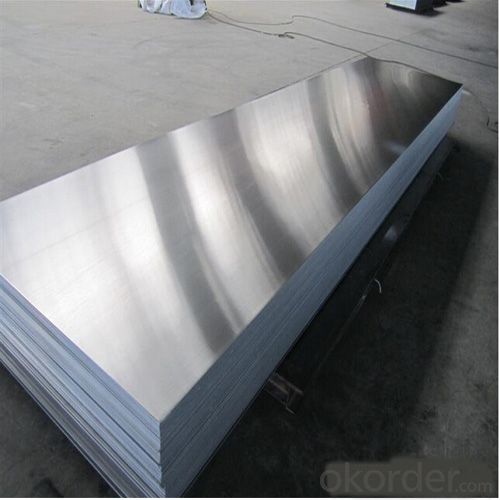
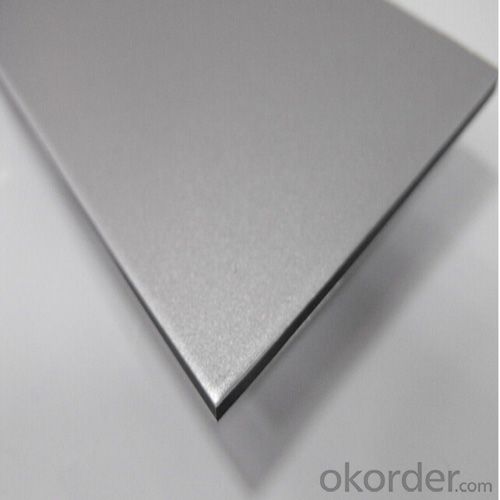
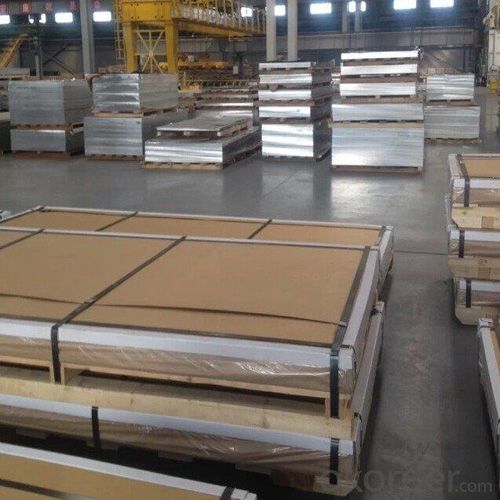
4. Sign Board Color Aluminium Sheet Specification:
| Alloy No. | Thickness (mm) | Width (mm) | Length (mm) | Temper | |
| A1050,A1060, A1070,A1100 | 0.2-100 | 20-2200 | 20-8000 | O,H12,H22,H14,H16,H18, H24,H26,etc | |
| 3A21,A3003,A3105,A3004 | 0.2-100 | 20-2200 | 20-8000 | O,H14,H18,H24,etc | |
| A5052 ,A5005,A5083,A5754 | 0.2-100 | 20-2200 | 20-8000 | O,H18,H24,H32,H34,H111,H112 ,etc | |
| A6061,A6082,A6063 | 0.2-200 | 20-2200 | 20-8000 | T4,T6, T651,etc | |
| A8011 | 0.2-100 | 20-2200 | 20-8000 | O,H12,H22,H14,H16,H18,H24,H26, etc | |
5.FAQ
Q1.How long have you been in this product?
A1:More than 10 years.
Q2. What's the minium quantity(MOQ)?
A2. 5 Metric tons
Q3. How long is shipping time?
A3. 7 (ready-made products)-25 days(OEM)
Q4. How do you guarantee the quality?
A4. 1. Cooperating and Exchaning experience with sevral quoted aluminum companies
2. Japanese and Swiss production line and skilled works (regular training and testing)
3. more than 10 years production experience.
Q5. Do you have after sale service?
A5. Yes. Any quality problem occurs within one year, pls take photoes,we will be responsible.
- Q: What are the advantages of using aluminum sheets compared to other materials?
- There are several advantages of using aluminum sheets compared to other materials. Firstly, aluminum sheets are lightweight, which makes them easy to transport and handle. This characteristic also makes them ideal for applications where weight reduction is crucial, such as in aerospace, automotive, and marine industries. Secondly, aluminum sheets have excellent corrosion resistance. They naturally form a protective oxide layer on their surface, which prevents further oxidation and corrosion. This property makes them suitable for outdoor applications, as they can withstand various weather conditions without deteriorating. Thirdly, aluminum sheets have high thermal conductivity. This means they can efficiently transfer heat, making them ideal for heat exchangers and other applications that require efficient heat dissipation. Moreover, aluminum sheets have excellent formability. They can be easily fabricated into different shapes and sizes, making them versatile for various industries. This formability also allows for complex designs and intricate details to be achieved. Furthermore, aluminum sheets have good electrical conductivity. This makes them suitable for electrical applications, such as wiring and electrical conductors. Another advantage of aluminum sheets is their recyclability. Aluminum is one of the most sustainable metals, as it can be recycled repeatedly without losing its quality or properties. This makes aluminum sheets an environmentally friendly choice. Lastly, aluminum sheets are cost-effective. Compared to other materials, aluminum is relatively affordable, making it a popular choice for many industries. In conclusion, the advantages of using aluminum sheets include their lightweight nature, excellent corrosion resistance, high thermal conductivity, good formability, electrical conductivity, recyclability, and cost-effectiveness. These properties make aluminum sheets a versatile and sustainable material for a wide range of applications.
- Q: Everyone said that the pre roll coated aluminum plate, what is pre roll coating?
- Beforehand, beforehand, mean,Roll coating is a paint coating process, relative to spraying, such as powder, wall coating, coating or roller coatingThe coating is applied to the surface of the aluminum sheet by a roller or steel roller. Roll coating
- Q: What are the different types of surface treatments for aluminum sheets in the marine industry?
- In the marine industry, aluminum sheets are widely used due to their lightweight, corrosion-resistant properties. To enhance the durability and performance of aluminum sheets in marine environments, various surface treatments are employed. These treatments provide an additional layer of protection against corrosion, oxidation, and other forms of wear and tear. Some of the different types of surface treatments for aluminum sheets in the marine industry include: 1. Anodizing: Anodizing is a common surface treatment for aluminum sheets. It involves creating an oxide layer on the surface of the aluminum through an electrochemical process. This oxide layer adds strength, improves corrosion resistance, and can also be dyed to provide aesthetic appeal. 2. Powder coating: Powder coating is a popular method to enhance the appearance and durability of aluminum sheets. It involves applying a dry powder to the surface of the aluminum and then heating it to create a protective coating. Powder coating provides excellent resistance to corrosion, UV rays, and scratches. 3. Chromate conversion coating: Chromate conversion coating, also known as chemical film coating or chromating, involves immersing the aluminum sheets in a solution containing chromate compounds. This process forms a thin layer of chromate conversion coating on the surface, which enhances corrosion resistance and provides a good base for subsequent painting or bonding. 4. Paint coating: Applying a paint coating to aluminum sheets is another surface treatment method in the marine industry. Paint coatings not only enhance the appearance but also provide a protective layer against corrosion, saltwater, and other harsh environmental conditions. Epoxy or polyurethane-based paints are commonly used for marine applications. 5. Mechanical treatments: Mechanical treatments such as brushing, grinding, or polishing can be performed on aluminum sheets to improve their surface finish. These treatments remove impurities, smoothing out any imperfections and enhancing the overall appearance of the aluminum surface. Each of these surface treatments has its own advantages and is chosen based on the specific requirements of the marine application. By selecting the appropriate surface treatment, manufacturers can ensure that aluminum sheets meet the necessary performance and durability standards in the demanding marine industry.
- Q: Can aluminum sheets be an alternative to wood in certain applications?
- Yes, aluminum sheets can definitely be an alternative to wood in certain applications. Aluminum has many advantages over wood, making it a popular choice in various industries. Firstly, aluminum is highly durable and long-lasting, as it is resistant to corrosion, rot, and pests. This makes it ideal for outdoor applications or areas with high moisture content. Additionally, aluminum sheets are lightweight, making them easier to handle and transport compared to wood. They also have high strength-to-weight ratio, meaning they can withstand heavy loads without compromising structural integrity. Furthermore, aluminum is a sustainable material as it can be recycled indefinitely without losing its properties. In contrast, wood requires cutting down trees, which has environmental implications. Aluminum sheets also offer design flexibility, as they can be easily shaped, bent, and formed into complex structures, allowing for creative and innovative applications. Moreover, aluminum has excellent thermal and electrical conductivity, making it suitable for applications where heat dissipation or electrical conductivity is important. Despite these advantages, it is important to note that wood still has its unique characteristics and benefits in certain applications. Wood creates a warm and natural aesthetic that aluminum cannot replicate, and it is often preferred in interior design or furniture manufacturing. Additionally, wood is a renewable resource and has excellent insulating properties, which can be advantageous in construction or insulation applications. Therefore, while aluminum sheets can be a great alternative to wood in many cases, the choice ultimately depends on the specific requirements and desired outcomes of the application.
- Q: This question asks about the various types of paint that can be used specifically for aluminum sheets, indicating an interest in paint compatibility and options for this particular material.
- <p>There are several types of paints suitable for aluminum sheets, each offering unique properties. These include: 1. Acrylic Paints - Water-based, easy to apply, and offer good adhesion. 2. Epoxy Paints - Known for their durability and chemical resistance, they provide a strong bond to the metal. 3. Enamel Paints - Provide a hard, glossy finish and are resistant to chipping and scratching. 4. Polyester Paints - Offer excellent durability and UV resistance, making them suitable for exterior applications. 5. Powder Coatings - Applied electrostatically, they provide a tough, scratch-resistant finish. 6. Specialty Paints - Such as heat-resistant or anti-corrosive paints, designed for specific industrial applications. The choice of paint depends on the application, desired finish, and environmental conditions.</p>
- Q: What is the typical wear resistance of aluminum sheets?
- The typical wear resistance of aluminum sheets can vary depending on factors such as alloy composition, tempering, and surface treatment. However, in general, aluminum sheets have relatively low wear resistance compared to materials like steel or titanium. They are more prone to scratching, abrasion, and surface damage. To enhance wear resistance, additional coatings or treatments can be applied to aluminum sheets.
- Q: is there any kind of deoderant, other than those crystals that smell, that don't have aluminum in it?
- Funny you should ask...I was reading the labels just yesterday on my deods also! Old Spice has Alum Hydroxide...Brut has Popylene Glycol and Old Spice High Endurance has Dipropylene Glycol. Ususally the 1st ingredient that you read on the label tells what it is the main ingredient. I prefer Brut!
- Q: Can aluminum sheets be used for missile components?
- Yes, aluminum sheets can be used for missile components. Aluminum is a commonly used material in aerospace applications due to its lightweight, high strength, and good corrosion resistance. It is often used for structural components and skin panels in missiles and other aerospace vehicles.
- Q: Its been bugging me for years and i want to know why they say aluminum and not aluminium like it is spelt in the Oxford English dictionary and more importantly the universal periodic table, accepted by all countries, does anyone know why? I would like all opinions on this matter, if possible, thank you
- Because it's written Aluminum on the periodic table.
- Q: Are aluminum sheets suitable for heat exchangers?
- Yes, aluminum sheets are suitable for heat exchangers. Aluminum is a lightweight and highly conductive material that allows for efficient heat transfer, making it ideal for heat exchanger applications. Its corrosion resistance also ensures the longevity and durability of the heat exchanger in diverse operating conditions.
Send your message to us
High Quality Aluminum Sheets for Boat Decking - Sign Board Color
- Loading Port:
- Shanghai
- Payment Terms:
- TT OR LC
- Min Order Qty:
- 5 m.t.
- Supply Capability:
- 10000 m.t./month
OKorder Service Pledge
OKorder Financial Service
Similar products
Hot products
Hot Searches
Related keywords
